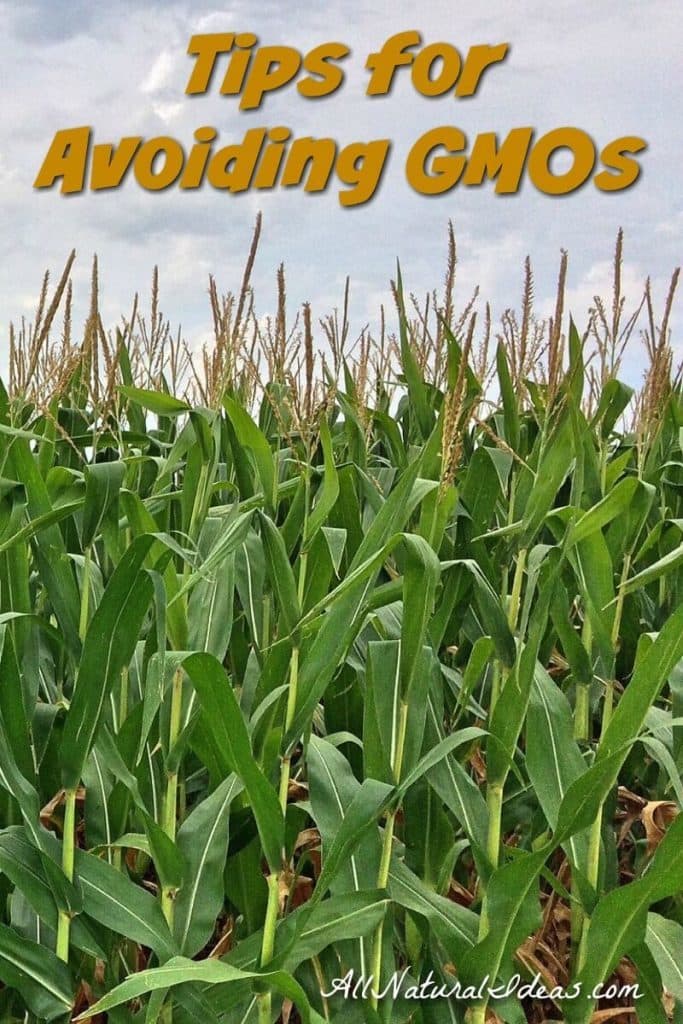Not sure what genetically modified organisms are? Looking to keep engineered foods out of your diet? Learn how avoiding GMOs can be beneficial!

There is much talk in the food world about genetically modified organisms (GMOs). There has been a big increase in GMOs in the past decade. And they are big money makers for large chemical companies like the one that created the weed killer Roundup.
Why is there so many GMOs used?
Crops that have been genetically modified are more resistant to pests and disease. They grow bigger. They yield larger plants. And, most important to the big chemical companies, GMO crops are more tolerant to herbicide use. And, the overuse of GMOs has now created resistant super weeds that are requiring use of harmful chemical herbicides.
Because GMOs are relatively new, there is little research about their long-term impact on humans. Short term, it appears that GMOs have no harm. However, quite the opposite can happen down the line.
With 94% of soy being genetically modified, and 88% of corn being genetically modified, avoiding GMOs may appear difficult. This is especially the case if you eat many processed foods. So many processed foods contain soy or corn in one form or the other. But, there are tips you can use for avoiding GMOs.
Tips for avoiding GMOs in Your Food
There are a couple easy ways to avoid GMOs in your food. The first is to buy organic. By definition, organic foods cannot be genetically modified. The easiest way to buy organic is to go down to your local farmers market. Here, you can ensure that the food was grown organically and locally by speaking to the farmers directly. If you do not have access to a farmers market look at labels in the food aisles. If you see the USDA’s seal stating that a product is organic, you can be assured that it’s free of GMOs.
Another way of avoiding GMOs by looking at food labels is to find a butterfly logo on the label. This logo should be accompanied by the text: NON GMO Project VERIFIED nongmoproject.org. This labeling verifies that a product is tested to be GMO free.
Unfortunately, in today’s society, it can be extremely difficult to go to the grocery store and avoid GMOs. Any processed food will likely contain GMOs. Buying 100% organic verified at the store will put a burden on your wallet.

How exactly can you avoid GMOs and not break the bank?
The best way is to not buy any processed foods at all. Whole food should be the basic ingredients for your meals, not the other way around. If you have the luxury of space, grow your own garden from organic seeds. If you do not have space, try growing a few plants indoors.
Some simple examples of safe alternatives to GMO laden foods are as follows:
- Rather than boil pasta, make your own homemade noodles out of zucchini or use organic spaghetti squash
- Rather than eat cereal, make oatmeal and incorporate your favorite berries
- Instead of buying canned tomato soup, puree your own.
So, the best ways of avoiding GMOs are to look at food labels. Go with the assumption that if it isn’t labeled “GMO-Free”, it likely has GMOs. Looking for “Organic” or the “Non-GMO Project” seal are good too. Avoid corn and soy all together, unless it specifically says GMO free. Cook from scratch. Buy from farmer’s markets or local farms. Grow your own organic vegetables. Any of these will keep GMOs out of your household.






